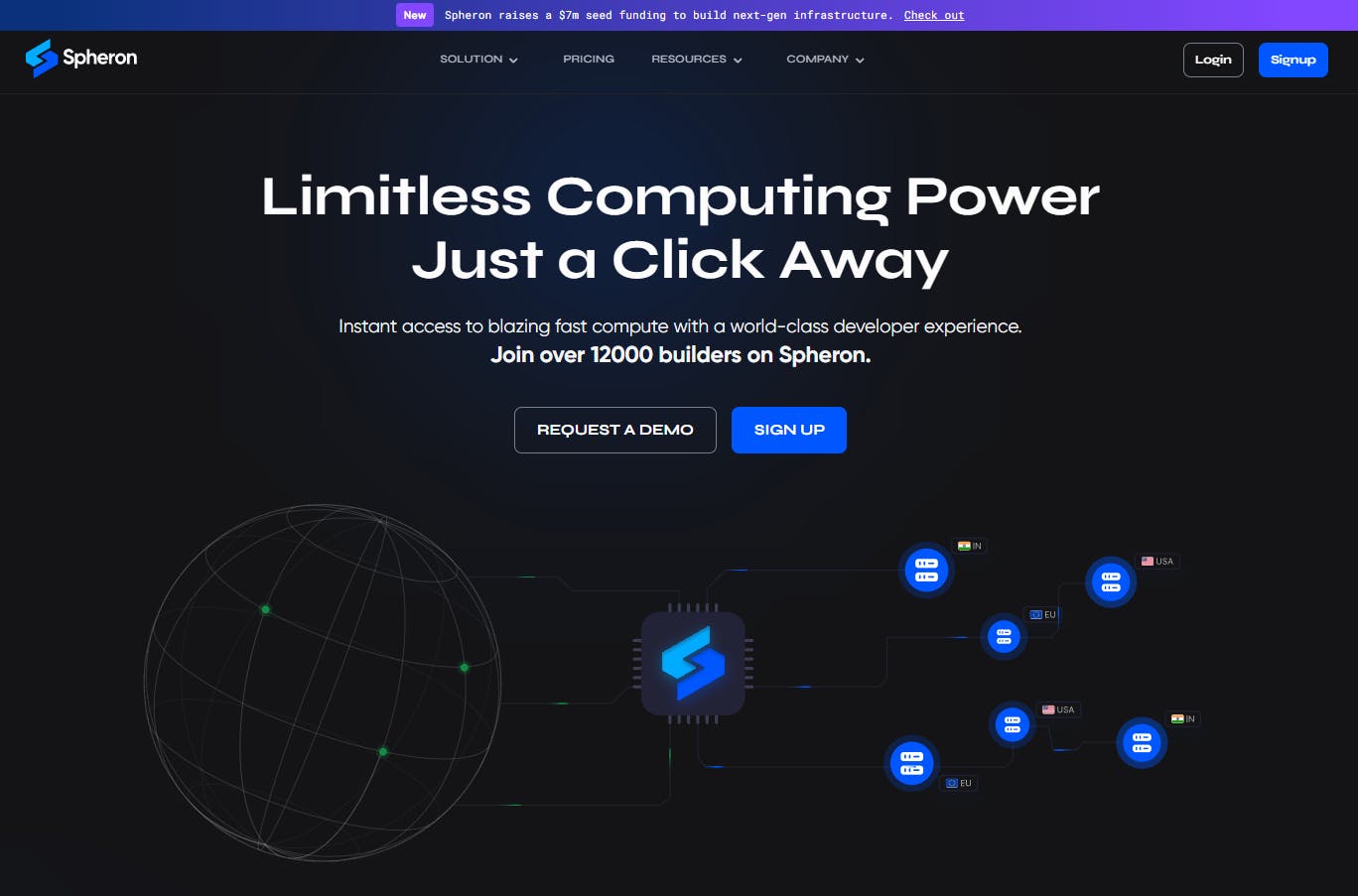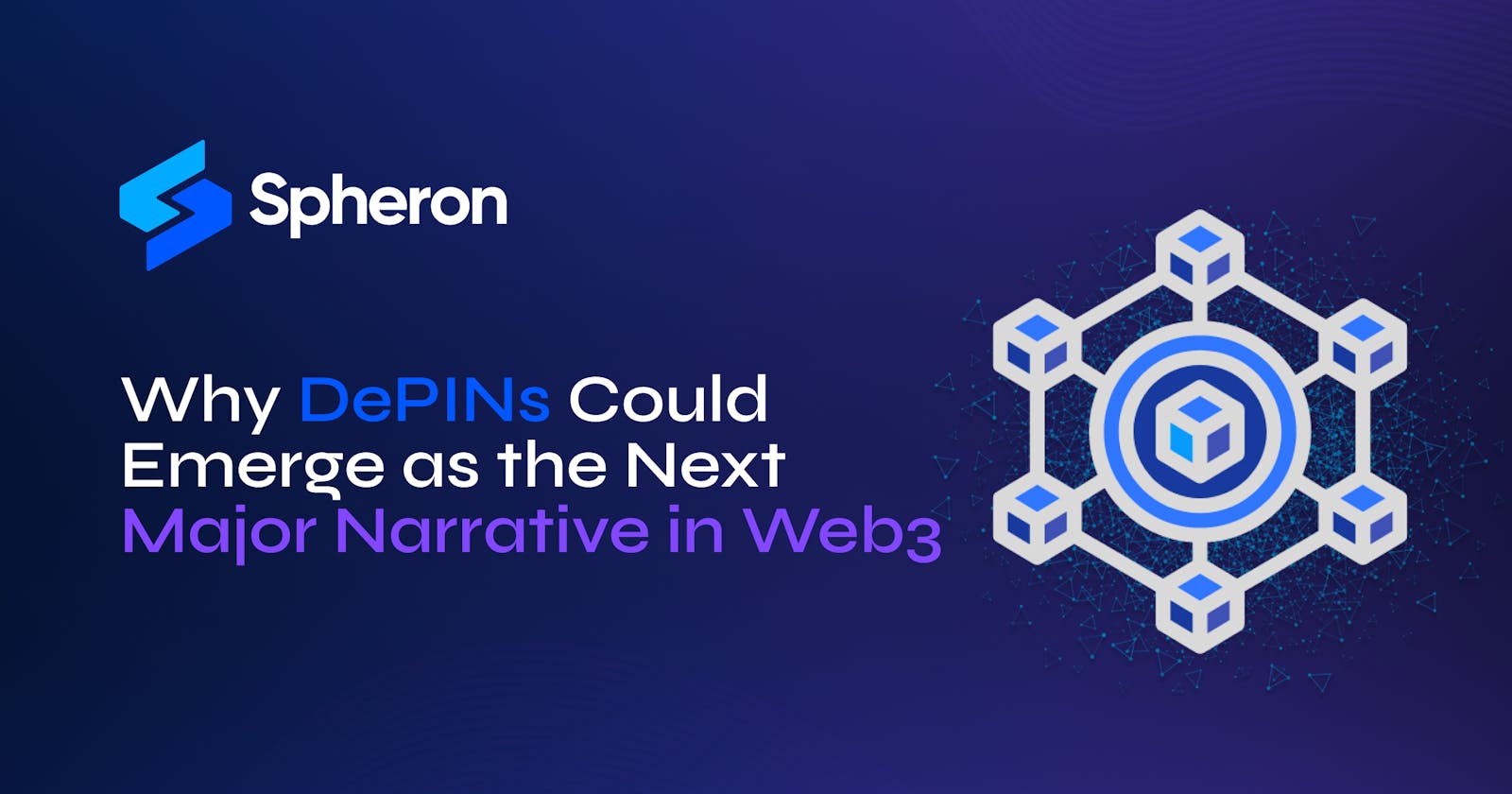Decentralized Physical Infrastructure Networks (DePINs) - the real deal in bridging the physical world and the blockchain. DePINs are disruptive, leveraging blockchain technology and crypto incentives to revolutionize how we build and manage physical infrastructure.
Web3's promise of decentralization goes beyond digital assets and decentralized finance, and DePINs are leading this revolution by decentralizing control of resources such as computing power, wireless networks, and energy grids. This paradigm shift can potentially create more resilient, cost-effective, and community-driven alternatives to the centralized systems we currently depend on.
Let's dive deeper into DePINs to understand their inner workings and reveal their true value. We'll also explore the latest developments in the field and the immense potential DePINs hold for the future.
DePINs: Explained
DePINs leverage blockchain and tokenization technology to effectively manage and incentivize infrastructure projects' crowd-sourcing phase. By running on blockchain in the background, these projects offer tangible, real-world value and services.
Corporations that invest significant amounts of time, energy, and capital into building and maintaining physical infrastructure, such as telecommunications companies, are the primary beneficiaries of the DePIN concepts. With DePINs, such companies can trade the physical constructs required to build their infrastructure with volunteers acting as network nodes.
In exchange for linking their hardware to these companies' services, volunteers earn tokens that can be redeemed once the company's tokens increase in value. This model is similar to the one cloud companies use that allows entrepreneurs to launch their businesses without hardware or infrastructure. Uber and Airbnb, among other behemoths, have profited from this business model.
Value Offer Of DePINs
The market cap of DePIN tokens has risen and surpassed US$31 billion (10 March 2024). The compute, storage, and AI categories account for the majority.
- In terms of blockchain exposure, the majority of DePIN projects currently are on the Ethereum blockchain. IoTeX is notable as a blockchain focused on IoT (Internet of Things).
The storage category accounts for the majority, with a total revenue of US$25 million, followed by decentralized computing, which had around US$5 million in revenue in 2023.
DePINs represent a revolutionary approach to tackling legacy companies outdated, capital-intensive methods when establishing and operating infrastructure networks. With blockchain at their core, DePINs provide a far more efficient way of launching and running services, promoting equal opportunity in the industry.
Not only do DePINs promote equality, but they also offer a vastly more affordable option compared to traditional infrastructure-building methods. By eliminating the need for physical constructs and the personnel required to build and maintain them, DePINs are unequivocally the more cost-effective solution.
This method offers a significant advantage in terms of speed. Linking existing hardware into a network is much faster than building individual constructs in specific locations. DePINs significantly reduce the time needed to launch a company, allowing new businesses to sprout more quickly. This approach is also better adapted to local market needs, which can change rapidly, providing a competitive advantage.
DePINs offer two significant benefits that traditional companies lack. First, they allow quick expansion across jurisdictions without requiring permission to install infrastructure. Second, thanks to the existing blockchain network, they facilitate payment to network participants easily and cost-free.
With DePINs, the network depends on thousands of nodes instead of constructs owned by a single company, making it more resilient to attacks and technical problems, such as outages. Furthermore, a structure with DePINs creates a neutral, collectively owned, properly distributed network for the company.
Emerging Players
DePINs, the latest concept in the blockchain world, are already dominated by big names in the centralized cloud service industry, such as AWS, Google Cloud, and CloudflareNET. These giants power most of the essential Web3 infrastructures. However, the increasing popularity of DePINs could inspire more community-driven models to emerge and challenge these centralized players.
Top DePIN Projects Gaining Momentum
1. Akash Network
Akash is a decentralized and open-source cloud computing platform. The network provides a marketplace, Akash Marketplace, that connects server owners with excess cloud computing resources with users who need these resources to host applications.
Akash Marketplace runs on Akash Network, a Tendermint-based blockchain built using the Cosmos SDK. Akash Network relies on a Delegated Proof of Stake (DPoS) for its consensus. The network is secured by a group of Validators responsible for producing blocks and processing transactions and state changes. To run Validator nodes, users must stake the network’s native token, AKT in addition to meeting the node hardware requirements.
2. Helium
Helium (HNT) is a decentralized blockchain-powered network for Internet of Things (IoT) devices.
Launched in July 2019, the Helium mainnet allows low-powered wireless devices to communicate with each other and send data across its network of nodes.
Nodes come in the form of so-called Hotspots, a combination of a wireless gateway and a blockchain mining device. Users who operate nodes thus mine and earn rewards in Helium’s native cryptocurrency token, HNT.
Helium aims to prepare IoT communication for the future, identifying inadequacies in the current infrastructure since its birth in 2013.
3. Filecoin
Filecoin is a decentralized storage network based on the Interplanetary File Storage (IPFS) protocol. It is designed to utilize unused storage globally into an efficient market for users to pay for low-cost storage. The objective is to ensure permanent file storage is distributed across the web. Contrast this with centralized cloud storage solutions such as Amazon Web Services, Google Cloud, or Dropbox, where data are stored in servers owned by these private corporations.
Filecoin (FIL or ⨎) is also the currency of the decentralized storage network. Customers wanting to access storage will have to pay for storage in Filecoin. Nodes that provide storage to the network will, in turn, be paid in Filecoin for their service.
4. Spheron Network
Spheron Network is a Web3 infrastructure platform that provides tools and services to decentralize cloud storage and computing. It allows audited data centers to join the Spheron marketplace. Spheron oversees the decentralized and governed nature of the infrastructure, ensuring permissionless access and heightened security for all users. Spheron Compute offers a feature-rich alternative to traditional cloud services at only one-third of the cost.

Spheron offers a Compute Marketplace, which allows users to set up useful tools quickly and easily, whether they want to deploy databases, nodes, tools, or AI. With Spheron, you don't have to worry about the technical stuff, and you can focus on deploying your Node with ease. Spheron Network has partnered with organizations like Shardeum, Avail, Elixir, Filecoin, Arbitrum, etc., to redefine access to it and promote a more decentralized, inclusive, and community-centric ecosystem.
Spheron provides features such as Private images, Auto-scale instances, Scale on demand, Real-time instance metrics, Faster GPUs, Free Bandwidths, Terraform Providers and SDKs, Instance health checks, activity, shell access, and more. Spheron provides add-on storage solutions for long-term data storage and edge bandwidth acceleration through its global CDN. With Spheron, you can easily set up your nodes in just a few minutes and enjoy low maintenance and operations costs and a great developer experience.
If you don’t already have a Spheron account, then sign up here!
The Future Of DePINs
DePINs have the potential to revolutionize industries by transforming them into decentralized infrastructures. DePINs can lower costs, increase efficiency, and promote expansion by democratizing access to essential data and processes. Moreover, they can upgrade existing infrastructure systems to be more resilient to technical problems such as outages and attacks by malicious third parties.
Although DePINs are a relatively new concept, there is no doubt that they will become mainstream shortly. Scalability, interoperability, security, and usability are undoubtedly challenges, but the rapidly changing nature of the blockchain will soon provide tangible solutions. Therefore, we can confidently say that the DePIN scene is poised for exponential growth, transforming how we do business.




